Editor-in-Chief
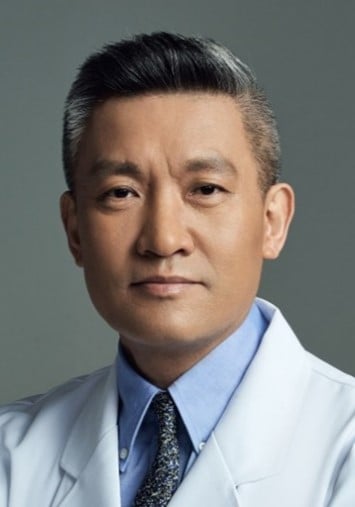
|
Luo Zhang, Beijing Tongren Hospital, Capital Medical University, Beijing, China
Prof. Luo Zhang is the President of Beijing Tongren Hospital. He has been mainly engaged in the research of pathogenesis, clinical diagnosis and treatment of chronic nasal diseases represented by allergic rhinitis (AR) and chronic sinusitis (CRS) etc in his career. He is a pioneer to develop and successively apply cluster subcutaneous immunotherapy using standardized mite allergen for AR in China. He has organized peer experts to carry out more than 10 Chinese and international multi-center studies to further research on allergen immunotherapy of AR and biologics treatment in CRS, which are the future trends of treatment strategies. He has been leading in a series of Chinese guidelines in English, including the Chinese Society of Allergy Guidelines for Diagnosis and Treatment of Allergic Rhinitis, Chinese Guideline on allergen immunotherapy for allergic rhinitis. Chinese Guidelines on Sublingual Immunotherapy for Allergic Rhinitis and Asthma and the Chinese Society of Allergy and Chinese Society of Otorhinolaryngology-Head and Neck Surgery guideline for chronic rhinosinusitis.
He is currently the Editor in Chief of Asia Pacific Allergy, Associate Editor of Allergy, Associate Editor of Chinese Journal of otolaryngology Head and Neck Surgery. He is the immediate past Chairman of Chinese Society of Allergy and is currently the Vice President of Otolaryngology Branch of Chinese Medical Association, and the treasure of Asia Pacific Association of Allergy Asthma and Clinical Immunology (APAAACI).
|
Co-Editor-in-Chief
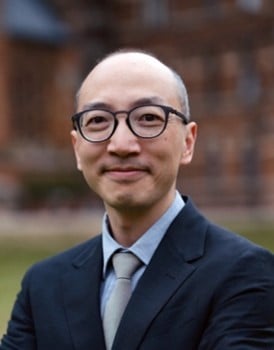
|
Wei Li, PhD/BM, National Institutes of Health, Bethesda, Maryland, USA Dr. Li is currently a Senior Investigator and Chief of the Retinal Neurophysiology Section at the National Eye Institute (NEI), National Institutes of Health (NIH). The primary objective of his research is to examine the mammalian retina as a representative model for the central nervous system (CNS), with the aim of comprehending its functionality under normal physiological circumstances, its formation, its deterioration under pathological conditions, and the potential for repair. His research is centered around two main themes: 1) The investigation of retinal structure, synapses, circuits, and development, and 2) The study of hibernation and metabolic adaptations in the retina and beyond. |
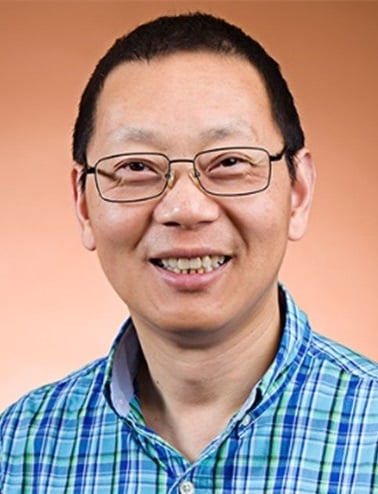
|
Zhizhou He, Creighton University School of Medicine, Omaha, Nebraska, USA David Z. He graduated from Medical College of Southeast University in China with a medical degree in 1983. He studied with Dr. Zhi-An Liang at the Shanghai Institute of Physiology, Chinese Academy of Sciences and received his PhD in Physiology in 1990. His postdoctoral training in the area of neuroscience was with Dr. Peter Dallos at Northwestern University. Currently, he is a professor at Creighton University School of Medicine. Over the past 30 years, He has published his studies on outer hair cell motility, mechanotransduction, and hair cell development and repair in the prestigious journals such as Nature, Science, Nature Neuroscience, Science Advances, and PNAS. He was a regular member of NIH AUD Study Section between 2006 and 2010 and regular member of NIDCD Study Section between 2016 and 2020. He reviews manuscripts for Nature, Nature Neuroscience, Nature Review Neuroscience, Neuron, Science Advances, PNAS, and the Journal of Neuroscience. He has received several awards, including the Sandy and David Marshall Award for Excellence in Auditory Science from American Hearing Research Foundation, Distinguished Research Career Award from Creighton University School of Medicine, and Creighton University Research Award. |
Executive Editor-in-Chief
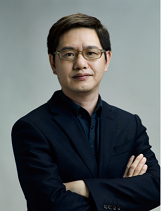
|
Zi-Bing Jin, M.D., Ph.D., Beijing Institute of Ophthalmology, Capital Medical University, Beijing, China Professor Jin is the director of Beijing Institute of Ophthalmology, full professor of Capital Medical University (CMU). He focuses on stem cell translational medicine in retinal health and genetic mechanisms of ocular diseases. His team is dedicating to make efforts on regenerating diseased retina in patients, elucidating the disease mechanisms of inherited retinal degeneration and children ocular disorders, translating laboratory technology to improve bedside outcome, and solving key basic problems on the benchside. He is also developing RPE/photoreceptor replacement therapy and new technology of man-made ocular organoids using human induced pluripotent stem (iPS) cells. For the first time, he established RP and RB patient-derived iPS cells and retinal organoids for disease modeling and cell replacement. |
Associate Editors
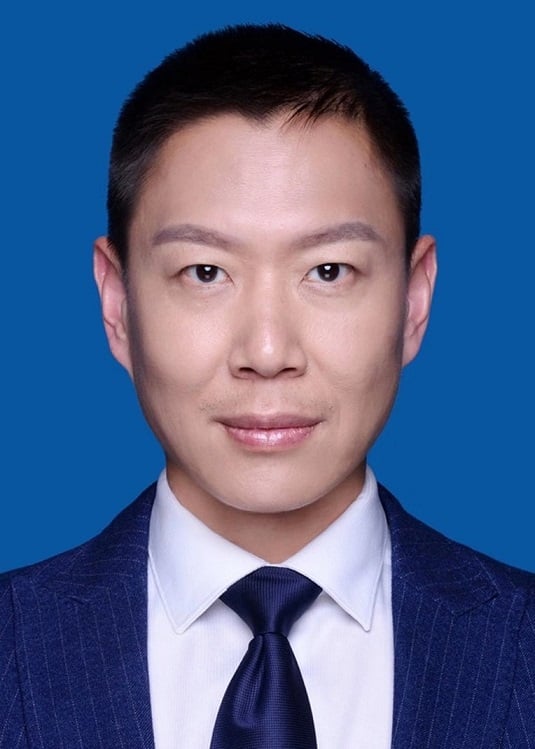
|
Chen Zhao, Eye & ENT Hospital, Fudan University, Shanghai, China Dr. Chen Zhao is a professor of Ophthalmology and the chief-doctor of the Division of Pediatric Ophthalmology and Strabismus at Eye & ENT Hospital of Fudan University. He is a recipient of National Science Foundation for Distinguished Young Scholars. He is also elected as Vice Chairman of China Association of Pediatric Ophthalmology and Strabismus (CAPOS), and Chairman of Shanghai Association of Pediatric Ophthalmology and Strabismus. Dr. Zhao has been focusing his researches on Pediatric Ophthalmology and molecular biology in retinal diseases. His work has been published in high-profile journals including JCI, Circulation, PNAS, Cell Rep, Elife, Ophthalmology and JAMA Ophthalmol. |
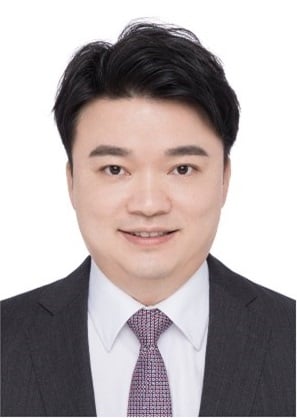
|
Haotian Lin, Zhongshan Ophthalmic Center, Sun Yat-Sen University, Guangzhou, China Prof. Haotian Lin is the Vice President, Professor, Primary Investigator, PhD mentor of Zhongshan Ophthalmic Center, Sun Yat-Sen University (integrating medicine, teaching, research and prevention together as well as ranked as the No.1 in ophthalmology consecutively for 13 years), and the Director of Department of Genetics and biological informatics, Zhongshan School of Medicine, Sun Yat-sen University. He is the PhD mentor of Center for Precision Medicine and School of Biomedical Engineering, Sun Yat-Sen University. He has been the member of the American Academy of Ophthalmology (AAO) since 2012. He is currently the Director of Asia Office of Afro-Asian Council of Ophthalmology (AACO-AO), the Deputy Chairman of Intelligent Medical Special Committee of Chinese Association for Artificial Intelligence (CAAI), the Executive Vice President and Secretary of Guangdong Association of Young scientists and the member of Ophthalmic Division of Chinese Medical Association. Prof. Lin was awarded as the “the 24th China Youth May Fourth Medal”, the winner of “the 1st Zhong Nanshan Youth Science and Technology Innovation Award” and “2021 Wu Wenjun Science and Technology Award for Artificial Intelligence”, picked as the “National Youth and Middle-aged Technological Innovation Leaders”. He is the Chief Scientist of the National Key R&D Program of China, working on the transformation and application of medical big data in diagnosis and artificial intelligence. He led over 10 projects like Major Research Project of National Natural Science Foundation of China. He has edited 4 books as the editor-in-chief, co-written 6 monographs and published more than 200 SCI papers as the first or the corresponding author, including Nature, Science, Lancet, BMJ, Nature Medicine, Nature Biomedical Engineering, Lancet Digital Health, PLoS Med, Lancet Discovery Science, etc. He also developed a number of medical equipment and software that successfully applied to clinic. He owned more than 20 patents from China and the US with exceeding additional 40 patents filed. |
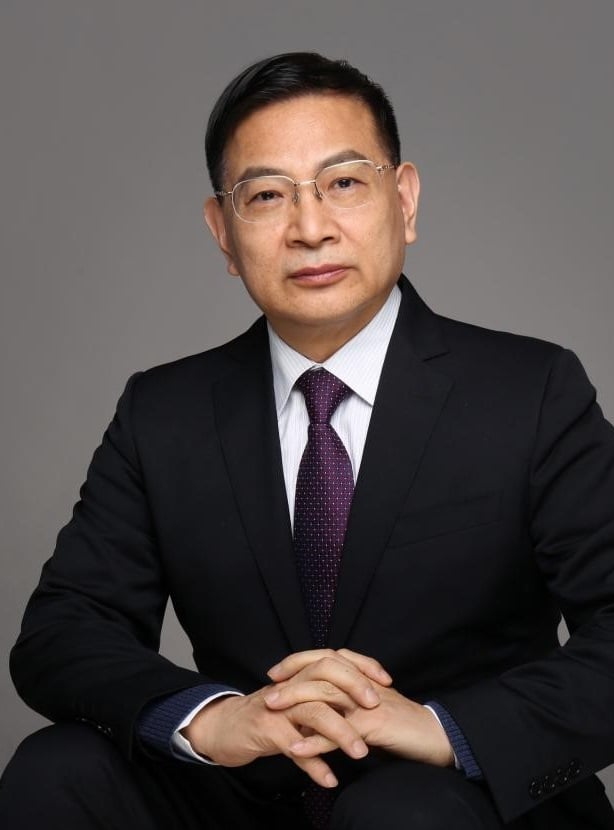
|
Peizeng Yang, The First Affiliated Hospital of Chongqing Medical University, Chongqing, China Dr. Peizeng Yang is the director of Chongqing Key Laboratory of Ophthalmology and Chongqing Eye Institute, the Founding Executive Member of Asia-Pacific Intraocular Inflammation Study Group, International Council Representative of International Ocular Inflammation Society, Council Member of International Society for Behcet’s Disease, and Member of the International Uveitis Study Group. He has been engaged in the clinical and basic study of uveitis and made a great contribution to the understanding, diagnosis and treatment of uveitis. He for the first time proposed the important role of IL23/IL17 pathway in the pathogenesis of uveitis and deciphered the genetic susceptibility of various uveitis entities. |
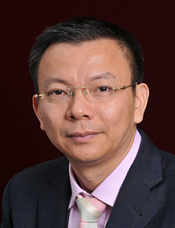
|
Xiaodong Sun, M.D. Ph.D., Shanghai General Hospital Affiliated to Shanghai Jiaotong University, Eye Research Institute of Shanghai, Shanghai, China Yangzi Endowed Chair Professor and Chairman, Department of Ophthalmology, Vice President of Shanghai General Hospital Affiliated to Shanghai Jiaotong University, Eye Research Institute of Shanghai. Committee Member of Chinese Society of Ophthalmology, Chinese Retinal Society. President of Shanghai Society of Ophthalmology, Member of ASRS, ARVO,AAO. Specialized in the expertise of in vitreous-retina surgery and medical retina. Major research interests are in retina, especially in age-related macular degeneration, gene therapy. Lead a research team and focus on the anti-VEGF therapy and mechanism of wet AMD and gene threapy. As principle investigators charge for 12 National Grants which were funded by the Ministry of Science and Technology of China and National Natural Funds of Science.165 publications were published by world-wide journals. Best doctor awarded by Chinese Society of Ophthalmology in 2010. Outstanding Reseacher and doctor awarded by National Natural Funds of Science, Ministry of Education and Shanghai Government. |
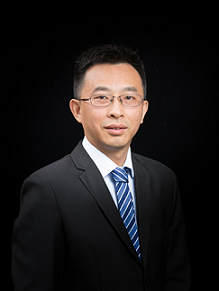
|
Zheng Liu, Tongji Hospital, Tongji Medical College, Huazhong University of Science and Technology, Wuhan, China Dr. Zheng Liu is the vice president of Tongji Hospital, and the director of Institute of Allergy and Clinical Immunology of Tongji Hospital. Dr. Zheng Liu is engaged in the basic and translational research of sinusitis and rhinitis, particularly the endotype and pathogenesis of chronic rhinosinusitis and rhinitis. Dr Liu’s group found that over half of Chinese patients with chronic rhinosinusitis with nasal polyps presented noneosinophilic inflammation, which is distinct from Caucasian patients. His continuous work contributes to understanding of the immune pathogenesis of sinusitis and rhinitis, and the development of endotype-based therapies. |
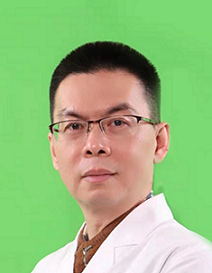
|
Huabin Li, ENT Institute and Department of Otorhinolaryngology, Eye & ENT Hospital, Fudan University, Shanghai, China Prof. Li is the Deputy Director of Otolaryngology Research Institute, Otolaryngology Hospital Affiliated to Fudan University, Deputy Director of Otolaryngology Department, Director of Nasal Allergy Department and Director of Allergic rhinitis Diagnosis and Treatment Center. He is also the Vice Chairman of Allergy Branch of China Medical Promotion Association, and president-elect of Allergy Branch of Shanghai Medical Association. He is the Co-chair of Oriental Rhinology Alliance and Oriental Allergy Alliance, Winner of the National Outstanding Youth Fund, Shanghai Excellent Academic Leader and the title of "National Famous Doctor". He has been engaged in basic and clinical research of rhinology and allergic diseases for a long time. He is good at nasal endoscopic minimally invasive sinus and skull base surgery. |
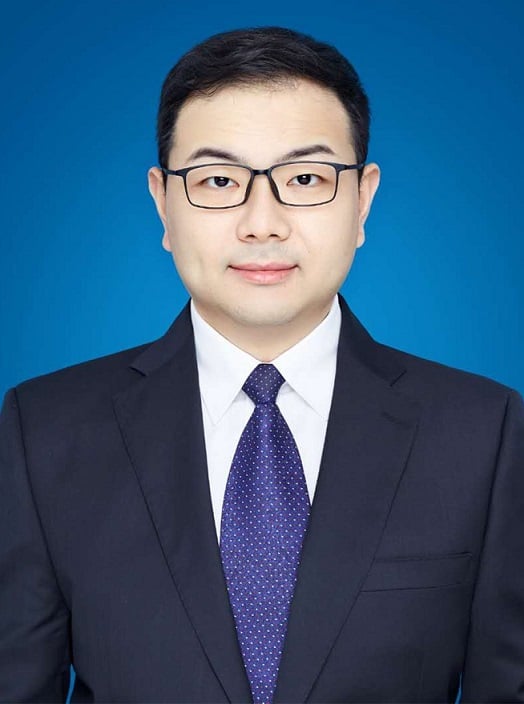
|
Renjie Chai, Ph.D., Southeast University, Zhongda Hospital, Nanjing, China Dr. Renjie Chai, Ph.D., Chief Professor of Southeast University, Executive Dean of Advanced Institute for Life and Health, Vice Dean of School of Life Science and Technology in Southeast University, double-hired professor of Department of Otolaryngology Head and Neck Surgery in Zhongda Hospital. He has been selected as Distinguished Professor of Changjiang Scholars program of the Ministry of Education, Chief Scientist of National Key Research and Development Program, Thousand Young Talents, National Natural Science Foundation Excellent Young Scholars. His other appointments include Chair of Association of Hearing, Speech and Communication in Biophysical Society of China, Vice-chair and candidate-chair of Stem Cell Physiology Committee of Chinese Physiological Society. Chairman of the Basic Research Committee of the China Audiology Medical Foundation, Executive Editor-In-Chief of ESCI journal American Journal of Stem Cells. His long-term research interests focus on the regeneration and protection of neurons and hair cells. He has published 119 SCI papers as (co-)corresponding authors (Total impact factors 1120.38; Average impact factor 9.33; Impact factor>30, 4 articles; IF10-30, 31 article); among which 4 articles were recommended by Faculty1000 prime, 1 article was selected as Cell Best of 2020, 13 articles were selected as ESI high citation paper, 2 articles were selected as ESI hot paper. The overall citation is over 6000 times, and the h-Index is 48. He won provincial and ministerial scientific awards for many times, including the first prize of Ministry of Education Natural Science Award, the first prize of Shanghai Science and Technology Advance Award, the first prize of Jiangsu Province Medical Science and Technology Award, the Jiangsu Province Science and Technology Award for Young Scholar, the SuLan Medical Award for Young Scholar and so on. |
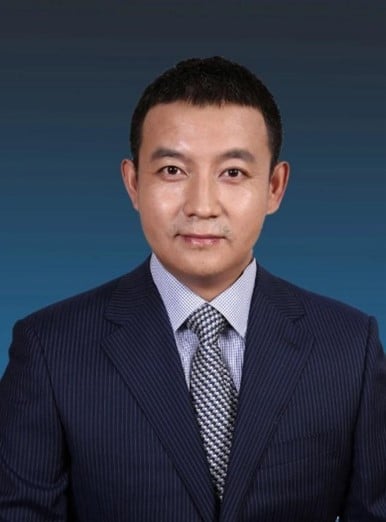
|
Chengshuo Wang, Beijing Institute of Otolaryngology, Beijing Tongren Hospital, Beijing, China Prof. Chengshuo Wang is the Director of Beijing Institute of Otolaryngology, winner of the National Science Foundation of China Outstanding Young Scholars. He is mainly engaged in basic and clinical translational research of chronic rhinitis and allergic rhinitis. He has published over 80 scientific papers in peer-reviewed journals including J Allergy Clin Immunol, Allergy and Rhinology. He has obtained several PCT patents and national patents and won 3 awards of Beijing Science and Technology. He is also a member of the academic Committee of Asia Pacific Association of Allergy, Asthma and Clinical Immunology. During his career, he has been delving into the management of large clinical studies, the screening of biomarkers and clinical translational medicine. He participated in the largest study cohort of nasal diseases in China. He has optimized allergen screening set to reduce the cost of in vivo diagnosis by 70%. He developed a prediction model of hormone sensitivity for chronic sinusitis, and recommended surgical procedure for refractory nasal diseases and inverted papilloma. He is still working keenly on the screening and evaluation of biomarkers which is of promising for the research of innovative treatment system. |